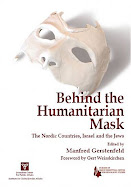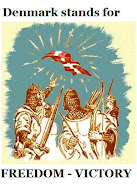
I find it ironic but also revealing that the Bishop of Rochester is of Pakistani origin and the Bishop of Canterbury is a Native Brit - This clearly illustrates that ideology, ethics, positive morality and values are in sharp contrast and superior to the arguments of multiculturalism which is the reason for the resulting naivists such as the dhimmidummy from canterbury.
Bishop of Rochester reasserts 'no-go' claim
His claim that Islamic extremism has turned some parts of Britain into "no-go" areas for non-Muslims led to fierce rows between political and religious leaders over the impact of multiculturalism on this country.
Those comments were followed soon after by the Archbishop of Canterbury's suggestion that the adoption of aspects of sharia law in Britain was "unavoidable".
The bishops' views in The Sunday Telegraph sparked a storm of criticism and raised questions over the role of the Church in society but, most seriously for Dr Nazir-Ali, led to threats that he and his family would be harmed.
Yet, in his first interview since the sinister calls were made to his home, the Bishop of Rochester remains steadfastly defiant. He will not be silenced. "I believe people should not be prevented from speaking out," he says. "The issue had to be raised. There are times when Christian leaders have to speak out." He arrived in Britain in the 1980s and seems to have taken up the mantle for defending the country's values he fears are being threatened by a loss of its Christian heritage.
He arrived in Britain in the 1980s and seems to have taken up the mantle for defending the country's values he fears are being threatened by a loss of its Christian heritage.
Dressed casually in a roll-neck jumper and sports jacket, he seems relaxed now as he walks around his study in Bishopscourt, but it has clearly been a stressful time.
Threats were made warning that he would not "live long" and would be "sorted out" if he continued to criticise Islam.
"If you disagree, that must be met by counter-arguments, not by trying to silence people. It was a threat not just to me, but to my family. I took it seriously, so did the police. It gave me sleepless nights."
However, it's not the first time that his life has been endangered.
Shortly after being made a bishop in Pakistan - at 35 he was the youngest in the Anglican Church - he was forced to flee to Britain to seek refuge from Muslims who wanted to kill him.
He says that he never expected to suffer the same treatment in Britain and expresses concerns over recent social developments.
"The real danger to Britain today is the spiritual and moral vacuum that has occurred for the last 40 or 50 years. When you have such a vacuum something will fill it.
"If people are not given a fresh way of understanding what it means to be a Christian and what it means to be a Christian-based society then something else may well take the place of all that we're used to and that could be Islam."
A highly-respected academic - he studied at Cambridge and Oxford - he speaks calmly and with a measured deliberation.
"There are extremist movements in this country whose agenda is far from integration, we must be aware of this," he says. "It is not only a threat to security but to integration. They are significant enough to influence sections of young people."
Just over a year ago Abu Izzadeen, an Islamic radical, heckled John Reid, the former home secretary, as he tried to deliver a speech on targeting potential extremists. "How dare you come to a Muslim area," Izzadeen screamed.
There was widespread dismay at the outburst, but nobody had dared to try to suggest that these views were entrenched across the country until the bishop spoke last month.
To many, he has become a champion of traditional Christianity and its importance to Britain at the same time as the Archbishop of Canterbury, Dr Rowan Williams, has been attacked for suggesting the adoption of aspects of sharia law is "unavoidable" in this country.
While the archbishop received widespread support from within the Church, Dr Nazir-Ali found himself isolated from his colleagues.
"I don't court popularity. If I say something it's because I think it's important enough to say it. What I said was based on evidence, and that has been strengthened as a result of overwhelming correspondence."
He wishes the Church would be more vocal on issues of multiculturalism and sharia law, but refuses to criticise his colleagues, although it is clear he is baffled by their silence.
"I can't guess why they haven't talked on the issue. I'm not responsible for other people's consciences." Is it due to cowardice? "You'd have to ask them."
He agrees with Dr Williams in supporting the right of Muslims to observe their religious freedom, but is strongly opposed to any idea of Islamic law being recognised within the British legal system.
"People of every faith should be free within the law to follow what their spiritual leaders direct them to, but that's very different from saying their structures should replace that of the English legal system because there would be huge conflicts." In particular, he points to polygamy, women's rights and freedom of belief as areas in sharia law that would undermine equality.
There is a danger that the archbishop's remarks could become a reality unless Britain quickly regains a sense of its Christian heritage.
"Do the British people really want to lose that rooting in the Christian faith that has given them everything they cherish - art, literature, architecture, institutions, the monarchy, their value system, their laws?"
As a Pakistani-born immigrant who has suffered racist abuse - he was called a "Paki papist" by Anglican clergy - he has gained an army of admirers who appear grateful to have someone brave enough to address controversial topics. He has vowed the latest threats will not change how he and his family live.
"The recovery of Christian discourse in the public life of this nation is so important. It's that discourse that will allow us in a genuine way to be hospitable to those who come here from different cultures and religions."
"We all know that in virtually every big city there are places where different kinds of people feel uncomfortable. The Bishop of Rochester was right to raise this."
Trevor Phillips, chairman of the Equality and Human Rights Commission
"I don't believe in multiculturalism. When people come to this country they have to obey the laws of the land."
Cardinal Cormac Murphy-O'Connor, the head of the Catholic Church in England and Wales
"There's a place for finding what would be a constructive accommodation with some aspects of Muslim law."
Dr Rowan Williams, the Archbishop of Canterbury
"In the name of multiculturalism, we have created monocultural ghettoes."
Ed Husain, author of The Islamist and a former activist in the extremist Islamist group Hizb ut-Tahrir
Wednesday, February 27, 2008
Bishop of Rochester reasserts 'no-go' claim
In warning of attempts to impose an Islamic character on certain areas, for example by amplifying the call to prayer from mosques, he seems to have tapped into the fears of a large section of society.
In quotes
Posted by
Rolf Krake
at
Wednesday, February 27, 2008
![]()
Subscribe to:
Post Comments (Atom)
































No comments:
Post a Comment